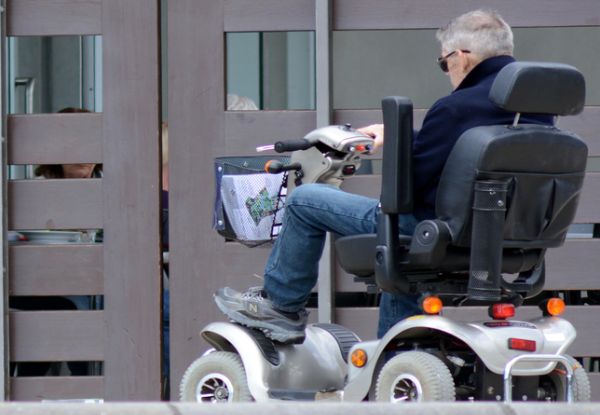Osteoarthritis, a condition characterized by the degeneration of joint cartilage and underlying bone, often leads to pain, stiffness, and decreased mobility. As it progresses, this common form of arthritis can significantly impede daily activities, making even the simplest tasks daunting. For individuals struggling with mobility due to osteoarthritis, mobility scooters have emerged as a boon, offering a renewed sense of independence and an improved quality of life. But the question often arises: is a mobility scooter the right choice for someone with osteoarthritis? This article delves into understanding the benefits and considerations of using mobility scooters amidst life with osteoarthritis.
Understanding Osteoarthritis and Mobility Challenges: Osteoarthritis predominantly affects the joints in the hands, knees, hips, and spine, leading to varying degrees of discomfort and disability. Pain and stiffness can make walking, standing, and balancing not only challenging but sometimes unsafe, increasing the risk of falls and injuries. When these issues limit personal mobility, it affects one’s ability to perform everyday tasks, potentially leading to a sedentary lifestyle, which further exacerbates joint issues and overall health.
Mobility Scooters: Offering a New Lease on Life: A mobility scooter is a motorized device designed to assist individuals who have trouble moving around, particularly over longer distances that would require extended walking. For those with osteoarthritis, these vehicles provide several benefits:
- Reduced Joint Stress: Mobility scooters eliminate the need for the repetitive joint motion and weight-bearing activity involved in walking, helping alleviate pain and preventing further joint damage. Users can navigate their surroundings without the physical stress that comes with limited mobility.
- Prevention of Overuse: Individuals with osteoarthritis often rely on their stronger joints to compensate for those adversely affected, leading to overuse and additional strain. Mobility scooters help mitigate this issue by allowing users to navigate their environment without exerting undue pressure on any set of joints.
- Enhanced Accessibility: Mobility scooters open up access to spaces and activities that might have been previously restricted due to limited mobility, from grocery shopping to participating in social gatherings. This accessibility is crucial for mental health and social well-being.
- Improved Independence: By facilitating easier movement, mobility scooters enable individuals to carry out daily tasks without constantly relying on others. This independence can significantly boost self-esteem and overall life satisfaction.
Considerations Before Opting for a Mobility Scooter: While mobility scooters can be incredibly beneficial, there are several factors individuals with osteoarthritis should consider before acquiring one:
- Medical Advice: It’s crucial to discuss with a healthcare professional whether a mobility scooter is the most suitable option, considering specific health circumstances, physical abilities, and lifestyle.
- Physical Capability: Users must have enough strength and dexterity to operate the scooter safely, particularly when maneuvering it in tight spaces.
- Environment Suitability: Consider the practicality of a scooter in your regular environment—home spaces, local stores, and community centers must be accessible with a scooter.
- Financial Aspects: Mobility scooters can be quite an investment. Potential buyers should explore insurance coverage, financing options, and possible subsidies that could offset the cost.
- Transportation: Consider how you will transport the scooter for outings or appointments. You’ll need a vehicle with appropriate space or a ramp, or you’ll need to ensure public transport in your area can accommodate scooters.
Conclusion: Living with osteoarthritis doesn’t have to equate to a loss of autonomy. While challenges in mobility and daily activities are part of this health condition, solutions like mobility scooters can provide relief and an enhanced sense of independence. By carefully considering their specific circumstances and consulting with healthcare professionals, individuals with osteoarthritis can decide whether a mobility scooter is an appropriate choice for improving their quality of life. Always remember, adapting to life with osteoarthritis is about finding the balance between comfort, mobility, and overall health and well-being.

